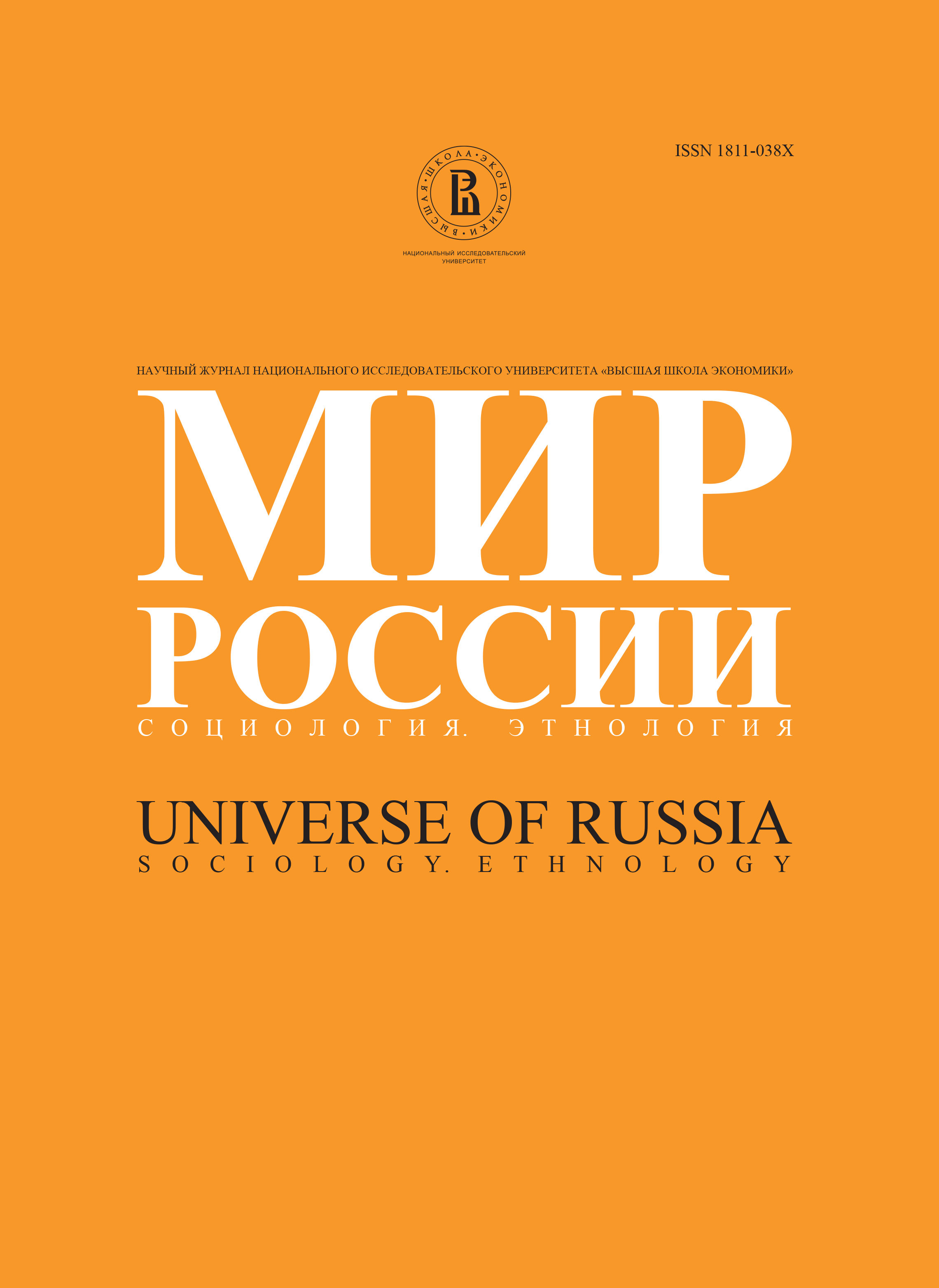Interaction of Interest Groups and Their Influence on the Economic Reforms in Contemporary Russia
Abstract
The logic of this article is based on the thesis that the key questions in today's economic policy in Russia are the following: WHO can support the reforms, who is able to guarantee steady economic growth, and HOW, with the help of what mechanisms one can consolidate and motivate these social groups.If we briefly sum up the results of the 1990-es for Russia, we can state, that the main market institutions have been formed in the country and market transformation has taken place. But at the same time the modernization of economy and society, which was declared as the main goal of the reforms, has not occurred. The modernization is still in the offing - but it is important to understand, who is interested in it and why.
An important characteristic of Russia as compared with the East European countries was the fact, that real social basis of Russian reforms in their initial stage was the Soviet party and economic nomenclature itself. Using the slogans of democratic and market reforms the younger generation of nomenclature successfully guaranteed its coming to power and also institutionally consolidated their position (in the framework of privatization).
Disastrous destruction of the state institutions, which went along with this process, was not accidental. Weakening of the state permitted to eliminate old mechanisms of the centralized control, which had somehow restrained the freedom of actions of nomenclature. The division of property, which had been managed by the bureaucratic machinery (which perceived itself as the real owner of this property) within the framework of the planned system was considerably simplified.
In this aspect the situation in Russia differed from the situation in China, where the reforms were also initiated by the representatives of the party machinery. However in China by the moment of the beginning of economic reforms at the end of the 1970-es the communist regime had existed for less than 40 years. And there was no such ideology crisis, such internal corrosion of the state and such demoralization of the elite, which could be observed in the USSR as far back as the end of the 1970-es - the beginning of the 1980-es and which became one of the main causes of rapid dissolution of the Soviet system.
Unconditional predominance of private interests among Russian politicians and officials at the beginning of the 1990-es accompanied by external weakness of the state and simultaneous accelerated destruction of all the control mechanisms of the administrative system, determined the specific model of relationship between business and authority, which was typical of Russia in the 1990-es. This model was based on close informal relationship between business and particular representatives of authority, who secured redistribution of state property and budget financial flows in favor of certain business groups.
As a result by the second half of the 1990-es a kind of «bad equilibrium» had emerged in Russian society - the situation characterized by lack of economic and political agents concerned with the modification of the existing system accompanied by evident inefficiency of the system itself. However in spite of external stability the system, which emerged at the expense of the transmission of traditions and customs of the Soviet nomenclature to the market environment, could be stable until the moment when its general inefficiency led to serious economic and social shocks. Such system shock was currency and financial crisis of 1998.
One of its results were considerable shifts in business-elite, when a number of effective companies of «the second echelon» moved forward instead of former oligarchs. The other result of the crisis were shifts in political and administrative elite. Inefficiency of economic policy of the 1990-es, which had determined the crisis, led not only to resignation of the government of Kirienko and regrouping of political forces, but also to very considerable personal changes in the State machinery. As a result nowadays 2/3 of officials of high and middle level are those who came to government service after 1990.
As a whole the crisis of 1998 had a sobering effect on the elite and for some time created presuppositions for development and economic growth. However the reproduction of noncompetitive structures, typical of the combination «imperfect market - weak state» and suppressing incentives for innovations would will henceforth be an obstacle to the social and economic development. At the same time the latest tendency to greater centralization in economic and political life will most likely contribute not to the economic growth but to strengthening of similar noncompetitive structures.
Nevertheless owing to existing differences in the level of efficiency and in the access to resources, there are some players both on the side of business and on the side of the state, who possess a potential for innovations and under certain circumstances can effectively use this potential for the development. As it is shown by the experience of several developing countries and countries with transition economy, this potential may be enabled and interests of appropriate players may be consolidated with the help of nonstandard set of instruments and mechanisms, supporting innovations in noncompetitive economic and political environment. This approach, however, calls for the change of emphasis in economic policy, rejection of existing stereotypes and readiness for institutional innovations.






